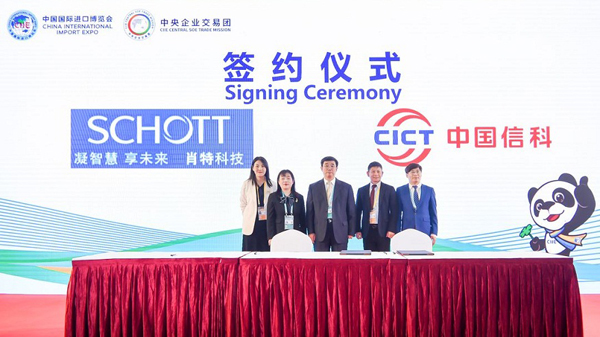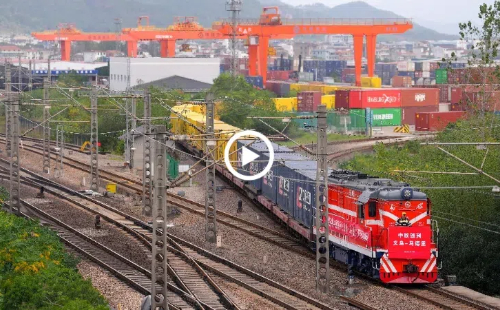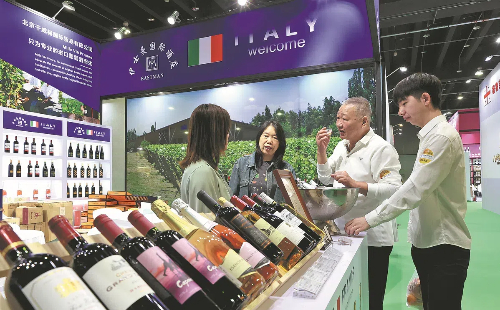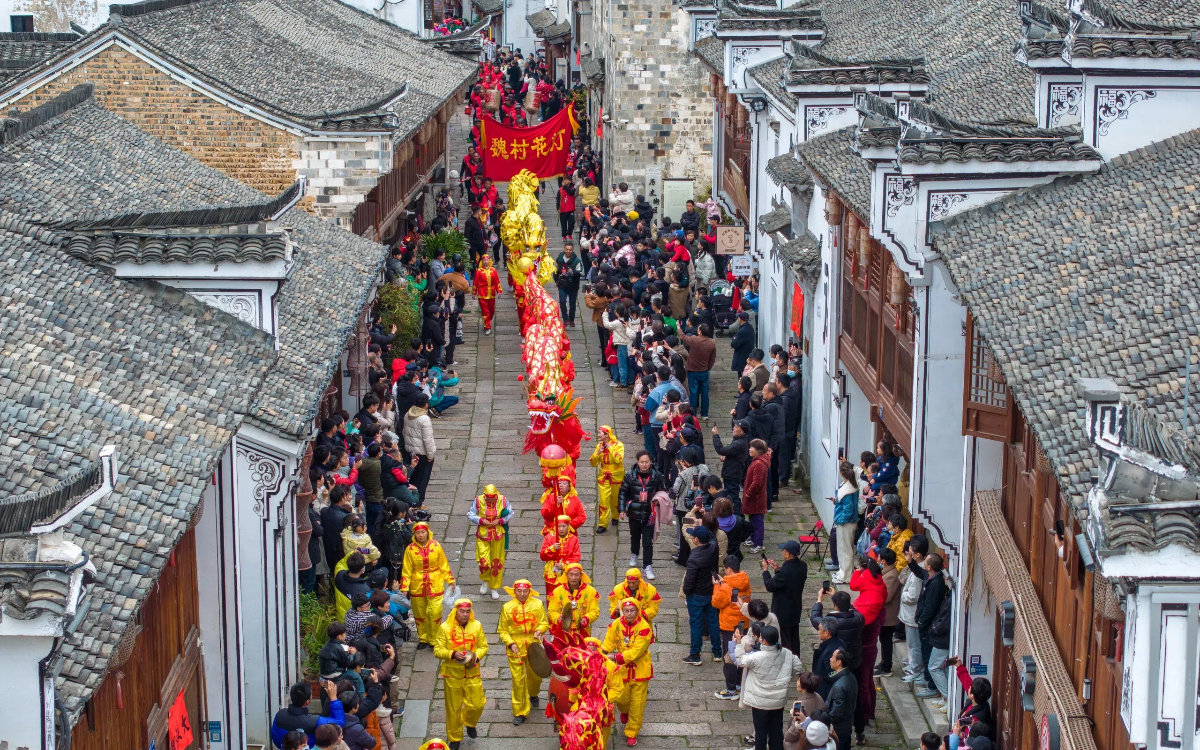Schott reiterates commitment to China

Schott signs an agreement with China Information and Communication Technologies Group during the CIIE. [Photo/CIIE Bureau]
Schott was invited to the inaugural edition of the China International Import Expo by the Zhejiang Provincial Department of Commerce after we had set up a joint venture with Zhejiang Crystal-Optech Co in 2018.
Unsure about what might happen at the expo, we decided to test the waters with a cozy 36-square-meter booth. As it turned out, the event proved to be a golden opportunity to network and grow our profile. In fact, I spent most of my time at the expo speaking with other exhibitors and visitors as well as taking part in a variety of activities.
Following the conclusion of the first CIIE, I told my team that the expo would become our most important event in the coming years. To date, Schott has participated in all editions of the expo, and our booth has steadily expanded over the years to 180 square meters.
The CIIE has without doubt been a boon for our business, helping us sign several cooperation agreements with Chinese companies, such as Qilu Pharmaceutical, Haohai Biological Technology, Accelink Technologies, and China Information and Communication Technologies Group.
Our flexible ultra-thin glass (UTG) products, which made their debut at the CIIE, have been used on foldable phones by many leading Chinese brands on the market.
Besides being the largest consumer market for Schott, China is also a major source of technological innovation for the company. As such, we announced at the second CIIE that we would establish a research and development center in Suzhou, East China's Jiangsu province. The R&D center is already operational and expected to provide technical support related to UTG, 5G communications, AR/VR, and energy storage.
Schott has been helping upgrade China's manufacturing industry by opening new factories and introducing high-end production lines. Encouraged by the achievements during the first CIIE, we decided to build a glass vial plant in China in 2019. Thanks to the efforts of the local government, the construction of the plant was completed as scheduled despite the COVID-19 pandemic. The vials produced by the plant have been used to store COVID-19 vaccines.
During the fourth CIIE, Schott announced that we would launch a 380-million-yuan project in Jinyun, East China's Zhejiang province, and invest 70 million euros ($69.7 million) in the second phase of the glass vial plant. Both projects are currently under construction.
Schott is also improving its technology to make its production more sustainable. When presenting a report to our headquarters after the fourth CIIE, I learned that Schott's experts were working on mass-producing glass using hydrogen energy.
Schott has reaped substantial benefits from its involvement in the CIIE over the past four years and is determined to make continued investments in China. We will attend the fifth CIIE this year to contribute to the sustainable growth of China's specialty glass industry.





 play
play